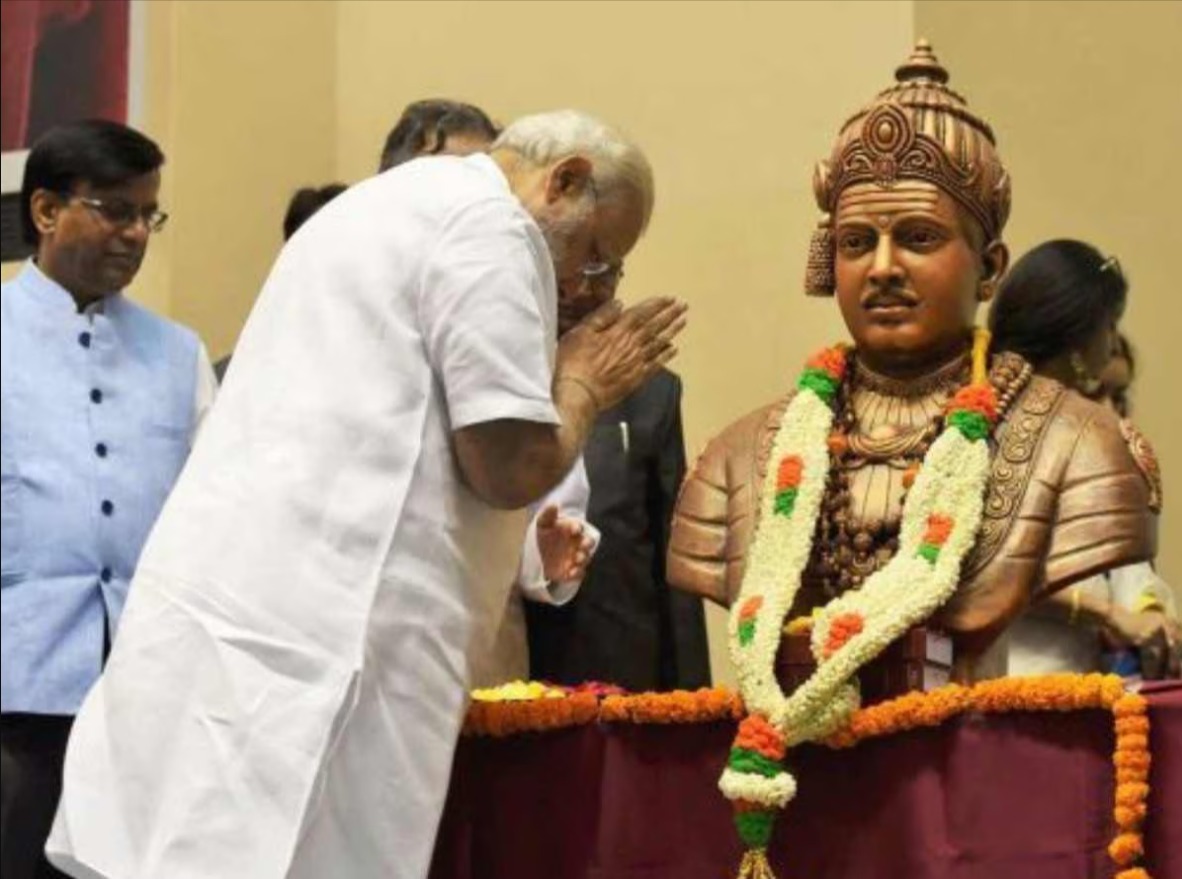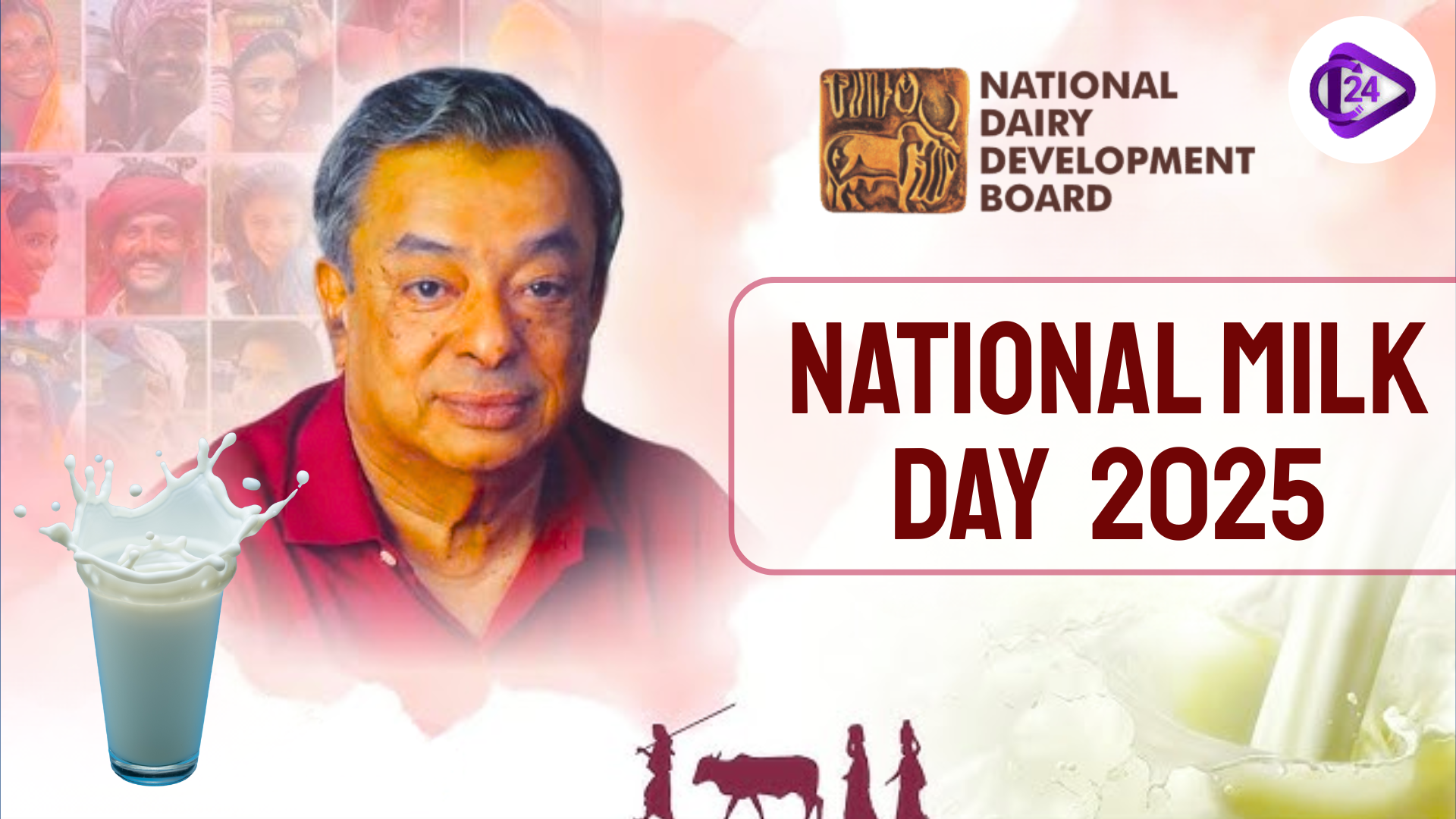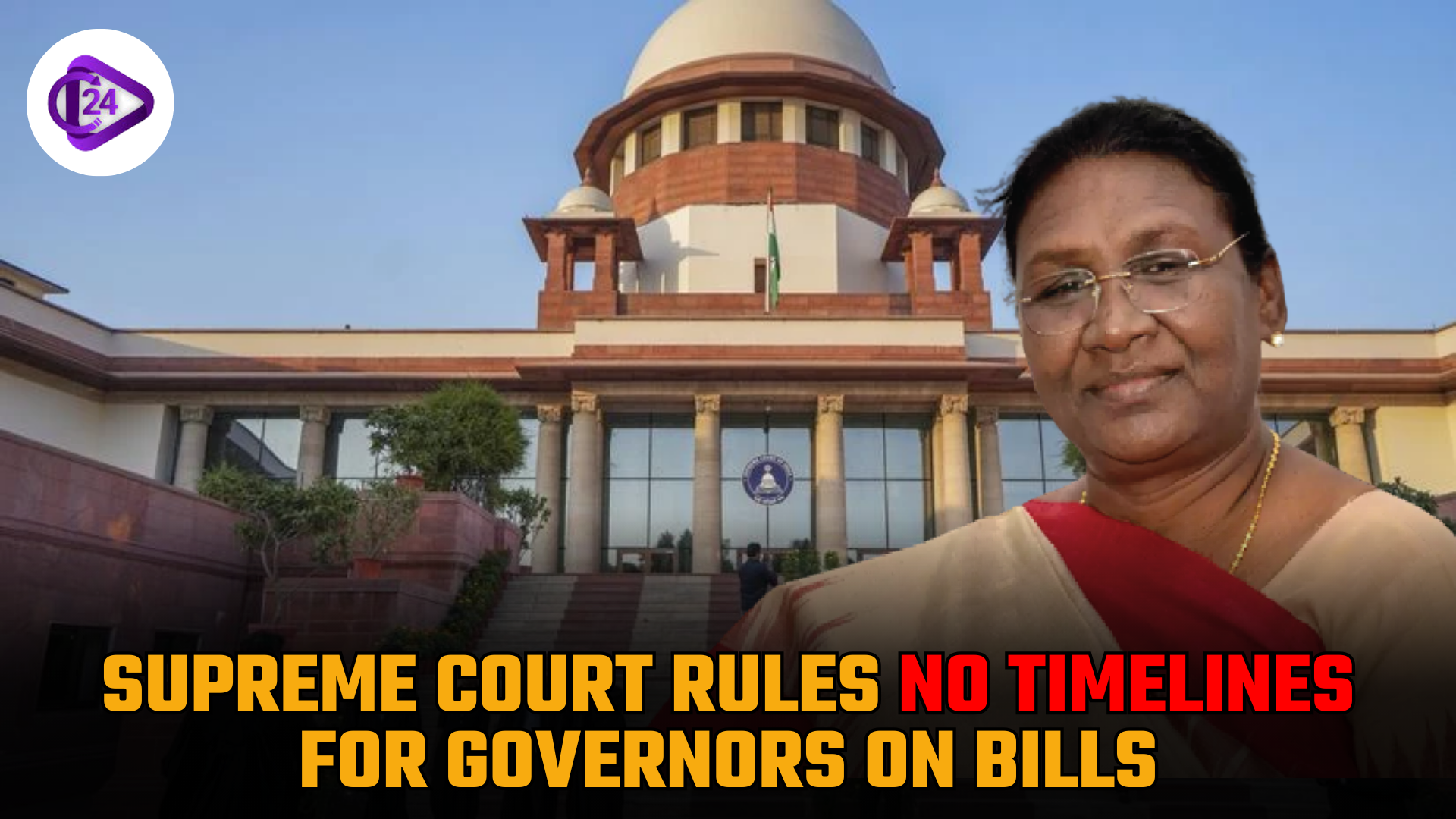
During Basava Jayanti, Prime Minister Narendra Modi honored Jagadguru Basaveshwar, who was a philosopher and statesman, and social reformer born in the 12th century. The Karnataka native Basaveshwara emerged in 1131 CE to bring forth the Lingayat movement and combat caste-based systematic prejudices that existed during his time. His Vachana poetry spread social awareness while he launched the Sharana movement that brought forth social democracy together with equality. Prime Minister Modi noted that Basaveshwara's wisdom continues to lead modern Indian citizens in matters of social equality and beliefs.
Context:
-
At the celebration of Basava Jayanti, Prime Minister Modi delivered a tribute to Jagadguru Basaveshwara.
-
The 12th-century philosopher Basaveshwara came from Karnataka, where he was a social reformer along with his work as a philosopher.
-
As the main leader of the Lingayat movement, he championed the concepts of equality together with social justice.
-
Vachanas evolved into key elements that united his philosophy with his messages about society.
-
Basaveshwara battled the caste system because, according to him, social value stems from the accomplishment of deeds rather than ancestry.
Key Points:
-
Through his key efforts, Basaveshwara established the Bhakti movement and propagated the Lingayat sect.
-
He actively fought discrimination based on social class while promoting logical thought and equal opportunity and physical labor as religious practices.
-
The Anubhava Mantapa created by him laid the groundwork for establishing social democratic principles.
-
The religious philosophy of Basaveshwara continues to be vital in our current time because it creates significant change in both social structures and individual spiritual development.
-
The Prime Minister salutes Basaveshwara's enduring heritage as it continues to guide modern social structures in India.
Conclusion
The life’s teachings of Jagadguru Basaveshwara guide the ongoing social progression and spiritual advancement of India. The principles he laid down about equal treatment, combined with social improvement efforts and work ethic respect, align perfectly with modern democratic beliefs. The founder of modern-day social justice movements in India established his foundation through his opposition to the caste system while promoting societal inclusion. His instructions continue to guide people who look for fair and peaceful social structures in their society.



 Union Cabinet Clears Plan for Conducting Census of India 2027
Union Cabinet Clears Plan for Conducting Census of India 2027 Deepavali Gets UNESCO Heritage Tag, Highlighting India’s Living Cultural Traditions
Deepavali Gets UNESCO Heritage Tag, Highlighting India’s Living Cultural Traditions Amit Shah Inaugurates EARTH Summit 2025 in Gandhinagar
Amit Shah Inaugurates EARTH Summit 2025 in Gandhinagar Postal Department Considers UPI-like ‘Labels’ for Addresses
Postal Department Considers UPI-like ‘Labels’ for Addresses Data Shows 34% Children Under Five Are Stunted
Data Shows 34% Children Under Five Are Stunted DoT Says, Sanchar Saathi App Must Be Pre-Installed on Phones
DoT Says, Sanchar Saathi App Must Be Pre-Installed on Phones Minister Dr. Jitendra Singh Unveils Hansa-3 (NG) Trainer Aircraft in Bengaluru
Minister Dr. Jitendra Singh Unveils Hansa-3 (NG) Trainer Aircraft in Bengaluru National Milk Day 2025: A Tribute to Dr Kurien and India’s Dairy Future
National Milk Day 2025: A Tribute to Dr Kurien and India’s Dairy Future Centre Implements Four Labour Codes | India’s Biggest Labour Reform 2025
Centre Implements Four Labour Codes | India’s Biggest Labour Reform 2025 Supreme Court Rules No Mandatory Time Limit for Governors on Bills
Supreme Court Rules No Mandatory Time Limit for Governors on Bills






